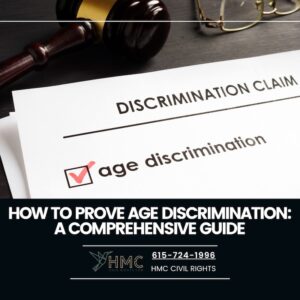The Sixth Circuit issued two disability cases at the end of October. One good for the plaintiff, the other not. Let’s try to make sense of them.
Tennial v. UPS. The employee’s ADA claims were dismissed because the court determined he failed to show that there was evidence that his supervisors were aware of this disability. This was in spite of the fact that Tennial took medical leave, had a recording where he talked to his supervisor about his “ADA deal” and talked to his supervisor about being “stressed out.” This case highlights the importance of knowing what your rights and obligations are.
If you have a disability that you may need accommodation for, check out your handbook and ask for accommodation. While the law does not require an employee to use “magic words” to request an accommodation, they need to be clear to their supervisor or HR that they have a need and that it is because of a particular medical condition. For example, an employee may request flexibility with respect to their start time because they are adjusting to a new medication for a chronic health condition. Visible disabilities are usually viewed by the court more leniently because they are usually more obvious, but “invisible” or hidden disabilities are a tougher call. Maybe the key for Mr. Tennial would have been more explicit in what was wrong with him and what he needed.
Camp v. Bi-Lo, LLC. The Sixth Circuit focused on whether Mr. Camp’s ability to lift more than 35 pounds was an “essential function” of his job as a grocery store stock clerk, and, if so, whether Camp could perform that essential function with or without reasonable accommodation.
Camp had suffered from scoliosis since he was a teenager, and he had worked with his bad back since that time- for 38 years. The Store Director was not aware that Camp suffered from a bad back, but his direct supervisor was aware. However, after an incident where Mr. Camp’s shift crew failed to finish on time, the Director became aware of Mr. Camp’s disability. Immediately after that incident, HR called in Mr. Camp to ask if he could still perform his duties. Mr. Camp told HR “Yes, I can still do everything. I know what I can lift and what I can’t, and I can do all the other things except lift the real super heavy items.” Keep in mind, at this point, nothing changed, except the fact that the Director found out Mr. Camp had a disability. At this point, Mr. Camp was given his job description which listed lifting capabilities up to 60 pounds, and told him to have a physician review his physical capabilities. The physician capped Mr. Camp’s lifting capabilities at 35 pounds. At this time, Bi-Lo forced Mr. Camp on a leave of absence and ultimately terminated him for “job abandonment” because he was not cleared to return to lift 60 pounds.
Because Camp performed his job for years with his back impairment without incident or complaint from his employer, the court of appeals reversed the decision of the trial court and found that a jury must decide whether the ability to lift more than 35 pounds was an “essential function” of his grocery store clerk job and whether Mr. Camp’s disability could have been reasonably accommodated by Bi-Lo.
The job description was not the end-all, be-all in this case. Mr. Camp’s immediate supervisor testified that “heavy lifting was not an essential function of Mr. Camp’s job, and Mr. Camp did his job fine.” This testimony was persuasive when the Sixth Circuit determined that a jury needed to decide the outcome.
There are some key takeaways from these cases, but the main point is that these are hard cases. Both cases initially got dismissed, but the Sixth Circuit reversed the trial court in Mr. Camp’s case and he will get his day in court. Make sure if you are experiencing discrimination on the basis of your disability that you contact a lawyer that focuses on employment work and will pick up on the many nuances in employment discrimination law.







